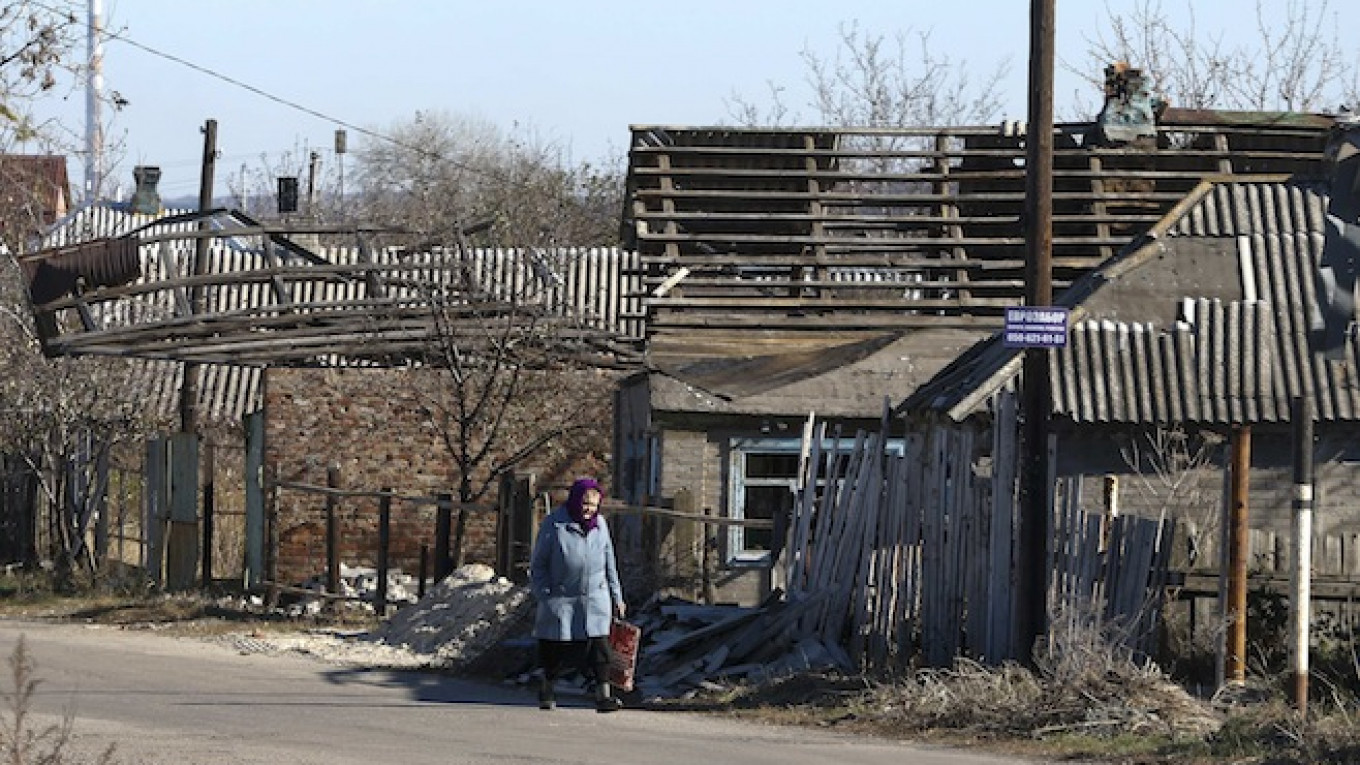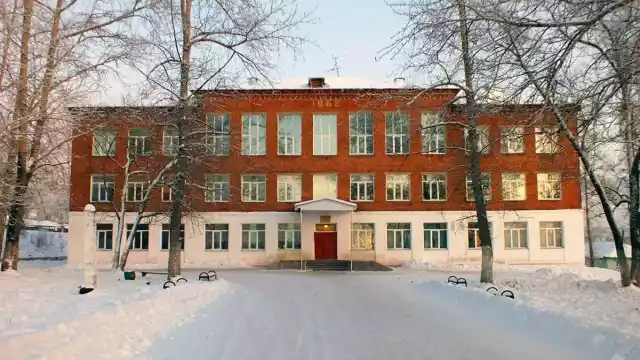An assembly of town residents in eastern Ukraine has claimed that dozens of pensioners have died of starvation in their district, a news report said, amid increasing signs of severe food shortages in separatist-controlled areas.
All of the 64 alleged starvation victims in the town of Chervonopartyzansk in the Luhansk region were pensioners, including three bedridden people with disabilities, the Informator.lg.ua news site said Sunday. The oldest of the supposed victims was 95, the report said.
It remained unclear how the number of alleged starvation victims was calculated, since their death certificates reportedly listed other causes of death, according to Informator. The news site cited an unidentified source as saying that separatist leaders had issued instructions for medics to attribute starvation deaths to heart disease or other illnesses.
Informator describes itself as a website run by pro-Ukrainian journalists in Luhansk, and says it does not disclose the identities of its sources in order to shield them from persecution.
The Moscow Times could not independently confirm the Informator report, but food shortages in eastern Ukraine's rebel-held Donbass region have been widely reported by both Russian and Ukrainian media.
The recently elected leader of the self-proclaimed Donetsk People's Republic, Alexander Zakharchenko, said late last month that humanitarian aid supplied by Russia covers "only 8 percent of what is needed," so food is rationed out only to "those most in need," according to a statement on the rebel administration's website.
The separatist vote, held earlier this month in the self-proclaimed Luhansk and Donetsk republics and denounced as a "farce" by Ukrainian President Petro Poroshenko, saw polling stations being used as distribution points for food and vouchers.
On election day, residents of the Donetsk region lined up for about an hour at a distribution point set up by the local authorities to buy potatoes, cabbage, onions and carrots at a cut-rate price of one hryvna [about $0.07] per kilogram, Russia's Novaya Gazeta reported.
Informator previously said workers were fainting from hunger in the Luhansk region's towns of Lutuhyne and Sverdlovsk, and that wages in another local town of Bryansk were being paid out in a can of meat and 1.5 kilograms of grain per month. The news site has also published photographs of people waiting in line for what it said were porridge handouts by a mobile kitchen in the town of Rovenky.
Contact the author at [email protected]
A Message from The Moscow Times:
Dear readers,
We are facing unprecedented challenges. Russia's Prosecutor General's Office has designated The Moscow Times as an "undesirable" organization, criminalizing our work and putting our staff at risk of prosecution. This follows our earlier unjust labeling as a "foreign agent."
These actions are direct attempts to silence independent journalism in Russia. The authorities claim our work "discredits the decisions of the Russian leadership." We see things differently: we strive to provide accurate, unbiased reporting on Russia.
We, the journalists of The Moscow Times, refuse to be silenced. But to continue our work, we need your help.
Your support, no matter how small, makes a world of difference. If you can, please support us monthly starting from just $2. It's quick to set up, and every contribution makes a significant impact.
By supporting The Moscow Times, you're defending open, independent journalism in the face of repression. Thank you for standing with us.
Remind me later.






